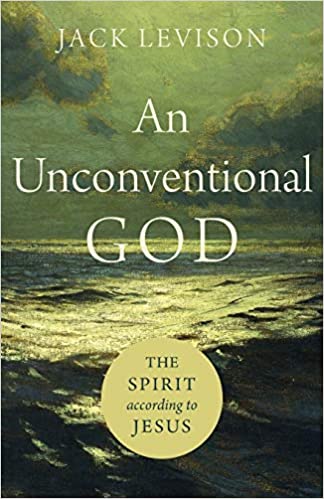BEN: I appreciate your emphasis on how the church from time to time has domesticated the Spirit, making it rather like Mr. Rogers, rather than a dangerous dynamo. Hard sayings like Mk. 3.29 and par. Warn us against such a misreading. Of course. the BIG question is what is blasphemy against the Holy Spirit? What counts as that terrible eternal sin that won’t be forgiven?
JACK: My mentor, Jerry Hawthorne, once gave this simple definition: attributing to Satan what is God’s by right. To some extent, this is correct, but the issue is much, much, much more complicated than that! (He was speaking to a college sophomore, and probably not the brightest one, at that!) I hope you won’t mind if I refer your readers to a chapter in An Unconventional God, “Spirit and the Threat of Blasphemy” on pages 98-114? I do this because each gospel author grappled with this saying and came to a different interpretation. There is no single definition. Most troubling and challenging for Christians is what Luke does with this saying: he sets it alongside a saying about witness and persecution. According to Mark and Matthew, enemies blaspheme the Holy Spirit; according to Luke, believers do. Frightening! In the end, there is no single definition.
This may have been the hardest chapter of the book to write. I think it is clear—clearer than anything I’ve read on the topic—so I would urge your readers to study that chapter.
BEN: The distinction between Jesus being controlled by Satan and so being ek-stasis, and by contrast being in control of demons through the power of Satan is helpful. I had never looked at the story in Mk. 3 that way, but you are right that these two accusations contradict one another. You take blasphemy of the Spirit, at least in Mark to be “less about false charges against Jesus…than about the inability of his opponents to acknowledge the true source of Jesus’ power” (p. 106), his miracles his Spirit-inspired teaching etc. I agree that the audience realizes that there really are only two options in evaluating Jesus— either he’s an inspired agent of God doing great things, or he’s an agent of Satan. There is no innocuous suggestion, ‘well he’s just a misguided teacher or sage, or a figure like Simon Magus, a power-hungry narcissist. No, the suggestions are more extreme. I do think Jesus really provoked such opposite views… and one is surprised it didn’t get him killed sooner rather than later. Jesus was a danger to the status quo in various ways. The problem of course is, that many today read the harsh criticism of Jesus in the Gospels as later Christian-imposed anti-Semitism. I don’t really agree. How would you respond to the accusation that the Gospel writers were biased against Jews and it shows in the way they handle the Gospel traditions?
JACK: I’d begin by saying the gospel writers were Jews. If they were biased against Jews, it was as Jews. It’s like right-wing evangelical Christians and left-wing liberal Christians. We fight tooth and nail, but, in the end, Jesus rose from the dead, and that binds us together (sometimes it binds us together like a bad lump of cheese rumbling in our stomach, giving us indigestion, but bound we are!). I think one of the most damaging things Christians have done is to read the Christian-Jewish divide back into the gospels and life of Jesus.
One of the most influential articles I’ve read in this respect is Krister Stendahl’s “Paul and the Introspective Conscience of the West” (or was that a book?). Stendahl argued that Lutherans read Luther’s experience into the apostle Paul’s and turned Pauline theology into a battle between works and grace. Stendahl argued that Paul was not converted from one religion to another but called to be a prophet to the nations. Stendahl may be right: Christians too readily read our own agenda into the text.
In the end, the gospels were Jewish compositions written within Jewish communities to Jewish recipients. Even if the recipients were Gentile, as in the possible case of Luke’s gospel, the authors still wrote from the perspective of the Old Testament. Just think of the birth narratives in Luke’s gospel, whose Greek mirrors the Septuagint, or Jesus’ first sermon. Where? In a synagogue? And what? Isaiah 61.
So I’d answer your question by saying that the gospel writers, especially Matthew, may have accentuated the tension between Jesus and his Jewish opponents, but Matthew did not invent them. I agree with you. It is surprising Jesus died somewhat on his in terms and not long before.












